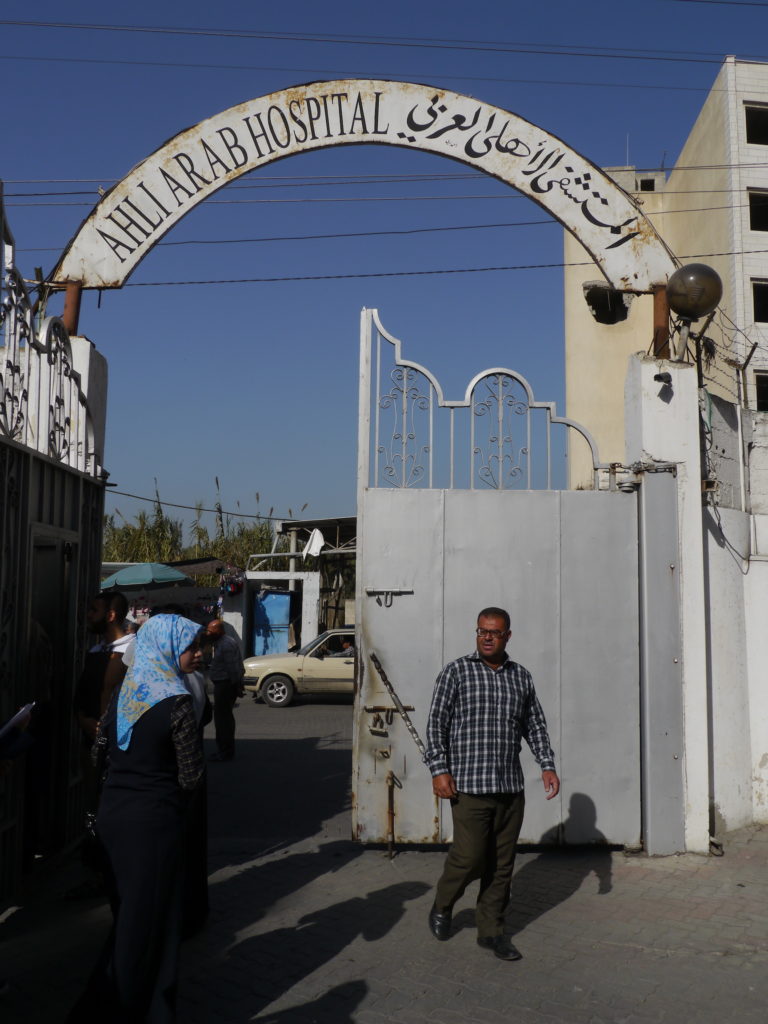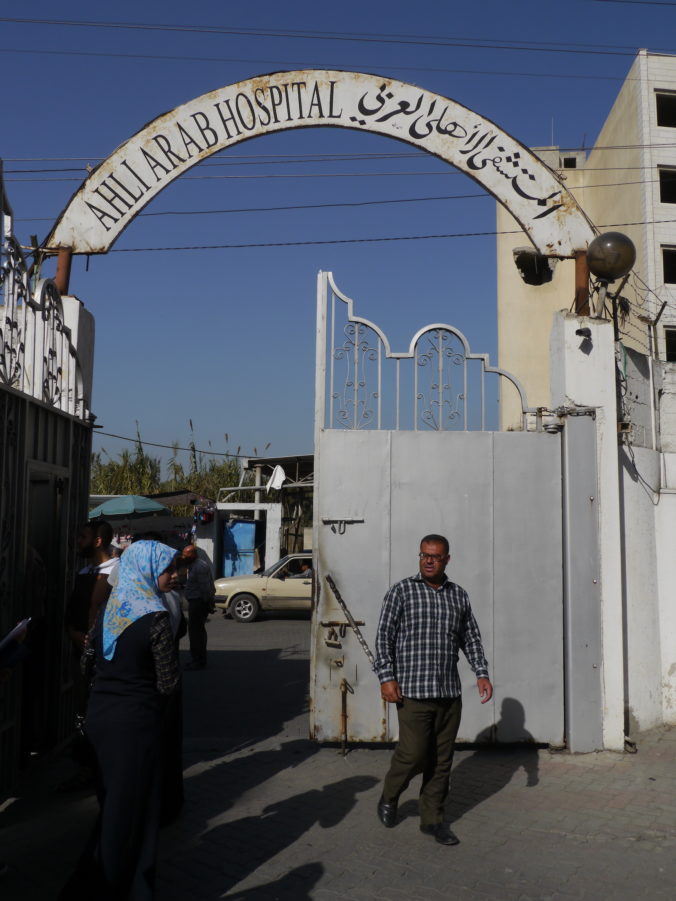 Since the time of Jesus, millions of Christians have had a fascination with visiting the Holy Land. It is a pilgrimage for many of us, almost in the same way as visiting Mecca is for Muslims.
Since the time of Jesus, millions of Christians have had a fascination with visiting the Holy Land. It is a pilgrimage for many of us, almost in the same way as visiting Mecca is for Muslims.
For much of my adult life I have wanted to visit the biblical sights in Israel, and last year I finally had the opportunity.
My work in the area of aid and development, as well as my passion for justice to be done for people living on the margins of society, had alerted me to the plight of Palestinians in the Holy Land. I didn’t know a whole lot about the conflict and its history, but I did know that Palestinians were the ones being oppressed and that therefore, as a follower of Jesus, I wanted to know more about the conflict from their point of view.
Our view of the world is determined by where we stand. Too often in Christian circles, we stand with those in power. If we stand with power, we will see the world from that point of view. This has been the case with Christendom ever since the time of Constantine. But if, like Jesus, we stand with the oppressed, we will see the world from their perspective.
This is where we need to understand something that is terribly misunderstood in the church: God plays favourites.
Jesus always sided with those on the margins, those who were deliberately ostracised and oppressed by the ones who had power. It is what ultimately got him killed. When you stand against the powerful, they don’t willingly submit.
It is a sad indictment on our claim to be Christian, and on our warped theology, that so many tours to and in the Holy Land focus only on life from an Israeli perspective. It’s not even like they are overtly anti-Palestinian. The Palestinian perspective is simply ignored. I’m not sure what is more hurtful for oppressed people; being actively persecuted or just not being heard by the outside world.
There are many Palestinian Christians in the Middle East who are losing business because of a focus on Israeli tour companies. These Palestinians are our brothers and sisters in Christ, but millions of Christians are not even aware that there are Palestinian Christians. These people are marginalised and are dwindling in number. Today, Palestinian Christians comprise approximately 1–2.5 percent of the population of the West Bank, and less than 1 percent in the Gaza Strip. The proportion of Palestinian Christians has dropped over the last 70 years. It was 20 percent in 1947.
This ignorance of the plight of Palestinians was highlighted earlier this year when Hillsong played a concert in Israel. A Palestinian Christian woman, Shadia Qubti, wrote of her experience at the concert in Caesarea, on the shores of Lake Galilee. The concert was part of a Hillsong tour to the Holy Land.
At the concert, Shadia soon realised that she was being ignored as a local, when people from all other nationalities were being welcomed. She describes her experience as follows:
“My mind starting questioning my attendance. I wondered if they didn’t welcome Palestinians because they don’t believe we exist at all. I couldn’t believe it…I could have spared myself the rush of anger, repulsion, and rejection that coursed through me at that time. How naive of me to think this concert wouldn’t be one-sided, that I would be welcomed to worship God in a place of mutual recognition.”
Shadia’s experience is common. The plight of Palestinians is ignored and/or misreported in the mainstream media and in much of the church. When we think of Palestinians, we often think of terrorists, but what I found in my time in Gaza and East Jerusalem last year was that the vast majority are just like you and me. They just want to live in peace.
The response of Hillsong to Shadia’s public complaint was nothing short of grace-filled and humble. Joel Houston, Hillsong United lead singer and son of Pastor Brian Houston, responded on Twitter: “Listening – and hearing loud and clear. It’s hard to fix what is beyond our control. But never been more inspired than my time w/ Palestinians”. He added, “And most sincere apologies. Our job is to point people to Jesus. A bridge needs foundations on both sides, may we carry that cross.”
This is the ministry of reconciliation that is needed for justice to come to Palestinians. The God who reconciled us to himself in Christ calls us to imitate this and be reconcilers ourselves. It is loving God and loving our neighbour – what Jesus said are the two greatest commands and which are inseparable from each other.
To gain a sense of historical perspective of the Holy Land, we need to discover how Palestinians have been and continue to be treated. Next time I visit the Holy Land, I will choose a tour from one of the following organisations:
- Come and See http://www.comeandsee.com/
- Holy Land Trust http://www.holylandtrust.org/
- Alternative Tour Group http://atg.ps/ and their guidelines http://www.atg.ps/resources/file/pages/Guidelines.pdf
- http://alternativetours-jerusalem.com/
- https://missiontravel.com.au/trip/palestine2018/
If we want to follow the Prince of Peace, we must be willing to be peacemakers and learn both sides of the story, and particularly the side of anyone who is oppressed. After all, that is where we will find Jesus.
To find out more about Holy Land tours that consider the Palestinian perspective, see:
- https://electronicintifada.net/content/visit-palestine-says-west-banks-growing-alternative-tourism-industry/8343
- http://www.pbs.org/newshour/bb/meet-two-holy-land-tour-guides-bridge-israeli-palestinian-divide/; and
- http://crosslight.org.au/2016/09/18/bethlehem-mayor-wants-prayers-peace/
Also see The Palestine Initiative on Responsible Tourism http://www.pirt.ps/ and information from the World Council of Churches: https://pief.oikoumene.org/en/issues/tourism
This article first appeared on Sight Magazine.





Leave a Reply